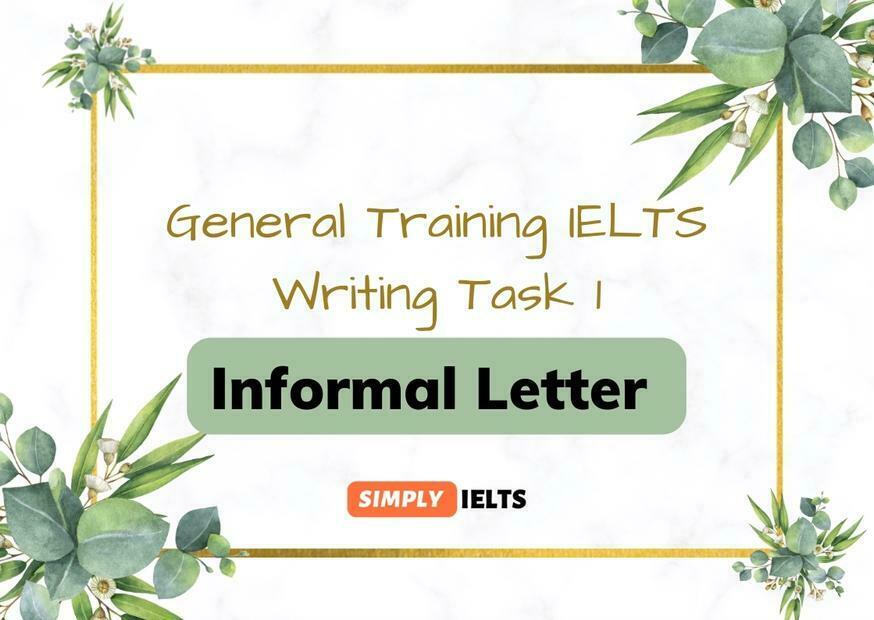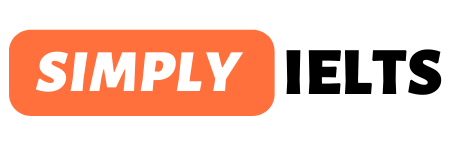How to begin an informal letter on IELTS?

When my students come across an informal letter in IELTS Writing Task 1, there is always at least one person who looks up in confusion.
They understand that they have to write to a friend or someone they know very closely, but cannot always gauge just how informal they can be. Why can’t I just ask for what I need from a friend? How do I even begin an informal letter?
You can start an informal letter with a small cursory greeting, and a follow-up from the situation described in the letter task or your previous interaction. Keep in mind; informal letters are written to friends and people you know very well and meet frequently.
So, there is no need to introduce yourself or get to the purpose of the letter right in the beginning.
To understand this well let’s consider a sample IELTS Letter for General Training module.
You should spend about 20 minutes on this task.
You play a team sport with some friends. Last week a member of the team had an accident and wasn’t able to play with you at the weekend. You decide to write to him in the hospital, telling him about the match.
Write a letter to your friend. In your letter,
- tell him which team won
- describe the conditions on the day
- say how you felt about the match
Write at least 150 words.
You do NOT need to write any addresses.
Step 1: Decide a simple name of the friend to whom you are writing the IELTS letter
Many students ask about which name I should assign to my friend. Should it be a local name or an English name? Would the examiner know the local names in my region? Well, the simple answer is “write the name of your best friend”.
Or decide anyone name which you like and write it in case of every IELTS informal letter. In my case, I write all my letters to my friend Tom.
Still what to write after that?
Now from the situation mentioned in the task, it is clear that this friend is quite close to you. So, there is no need to be formal. Having said that the question remains, how do I begin the letter? Now, think about what would have happened if you wanted to call your friend.
You would greet him and ask a general question related to either the situation or your last conversation. Right? Simply do that here as well.
Step 2: First sentence: Greeting
If the letter is written to a friend you have not spoken to in a while, you can always start with
“I hope this letter finds you well.”
You may even enquire about their wellbeing, and of someone else in their life like their parents or partners (to show just how close you are to them). The key is to establish that you care about their wellbeing. Or if you want to sound a bit fancy, you could say
“I hope this letter finds you in the pink of your health.”
Step 3: Second sentence: Follow-Up from the situation
Next, follow up with the reader. This is a way of establishing just how well you know them. In the follow-up, you may write something which is remotely related to the situation in the letter. In this case, you may ask your pal about his or her health.
In case you cannot figure out what to write, you may bring up a personal detail. It could be about the reader’s pet or something that you both discussed the last time you both met. This would establish that you talk to each other frequently.
Being specific with their hobbies, or bringing up a “mutual friend” would also do the trick. Making some small talk before getting into the purpose of the letter in the body paragraphs is essential.
You wouldn’t call your friend and ask for the favour before talking to them about general things first, would you?
Sample Introduction
Dear Frank,
I was so sorry to hear about your accident! I hope you’re feeling a lot better today and that it’s not too boring in hospital.”
This is a concise introductory paragraph which has both, a small greeting ‘I hope you’re feeling a lot better’ and a follow up ‘I was so sorry to hear about your accident!’ The exclamation point set the informal tone as exclamation points are mostly avoided in formal letters.
Let’s consider another IELTS Writing Task 1 for General Training.
Question 2:
You should spend about 20 minutes on this task.
You want to sell your television. You think a friend of yours might like to buy it from you. Write a letter to your friend.
In your letter:
- explain why you are selling the television.
- describe the television.
- suggest a date when your friend can come and see it.
Write at least 150 words
You do NOT need to write any addresses
Begin your letter as follows:
Dear ____,
Answer 2:
“Dear Siddharth,
Hope you are doing well. It has been a long time since our last meeting. I wanted to share a piece of fantastic news with you.”
In this case, the writer decided to lead with the ‘good news’ of him or her moving abroad, the reason for selling the television. This move also establishes the relationship between the writer and the reader.
If ‘Siddharth’ is an excellent friend, he would be more interested in knowing that their friend is moving abroad, and the television would take second priority.
Conclusion:
There must be some semblance of an emotional, on-going relationship between the reader and the writer. This can be shown by having small greetings and a follow-up that should be personal to some degree.
Depending on the context of the letter, you can combine the two, as in the case of the first example, or lead with another point altogether.





Responses